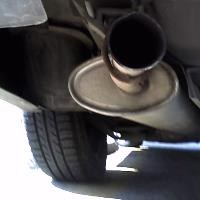(BRUSSELS) – EU car emission rules had lacked clarity, conceded Guenter Verheugen, EU Industry Commissioner from 2004 to 2010, as he appeared before the European Parliament’s enquiry committee into the ‘Dieselgate’ scandal Wednesday.
The European Parliament decided to set up the Committee on Emission Measurements in the Automotive Sector (EMIS) at the end of last year with a remit to investigate in detail alleged contraventions and maladministration in relation to emission measurements in the automotive sector.
MEPs are currently working on new legislation to improve the reliability of car testing.
Mr Verheugen argued that as Commissioner for industry, his main responsibility was to keep the EU car industry globally leading and competitive, with rules best suited for technological development – including pollutants’ limits.
He said he relied on experts for the drafting of the directives on Euro 5 (on particles) and Euro 6 (NOx).
It was clear that type approval tests didn’t represent real driving conditions and therefore a new test started to be developed in 2007 but no one suspected that manufacturers would cheat using so-called defeat devices.
Pressed on whether the rules were so vague that they allowed for misinterpretation, the former Commissioner insisted that defeat devices had already been banned at an earlier stage and that those provisions were copied into ensuing rules, but MEPs stressed that this was the case for lorries only.
Mr Verheugen admitted that at the time nobody considered the possibility of sophisticated cheating at emissions tests and that in hindsight the rules might be perceived as lacking clarity.
MEPs also quizzed Mr Verheugen on the lengthy procedure for developing new tests and on the Commission decision to focus mainly on the reduction of CO2 emissions, neglecting the harmful NOx.
Mr Verheugen insisted that changes to the so-called type approval were on the right track at the time but he declined to speculate on why it took so long to complete.
The Commission focused on CO2-reduction as that was part of the EU global commitment in the fight against climate change. Mr Verheugen concluded that together with his team he took decisions which were right at the time.
Asked whether there were any hints that a possible manipulation could have existed, he said: “We have to be frank with each other that was not something anyone suspected, I didn’t even think it was possible, from a moral point of view I didn’t think it was possible and I didn’t think it was possible from a technical point of view to do this. There was not the slightest indication, there was absolutely no information on this.
The committee’s next meeting is on 5 September,
Committee of Inquiry into Emission Measurements in the Automotive Sector


